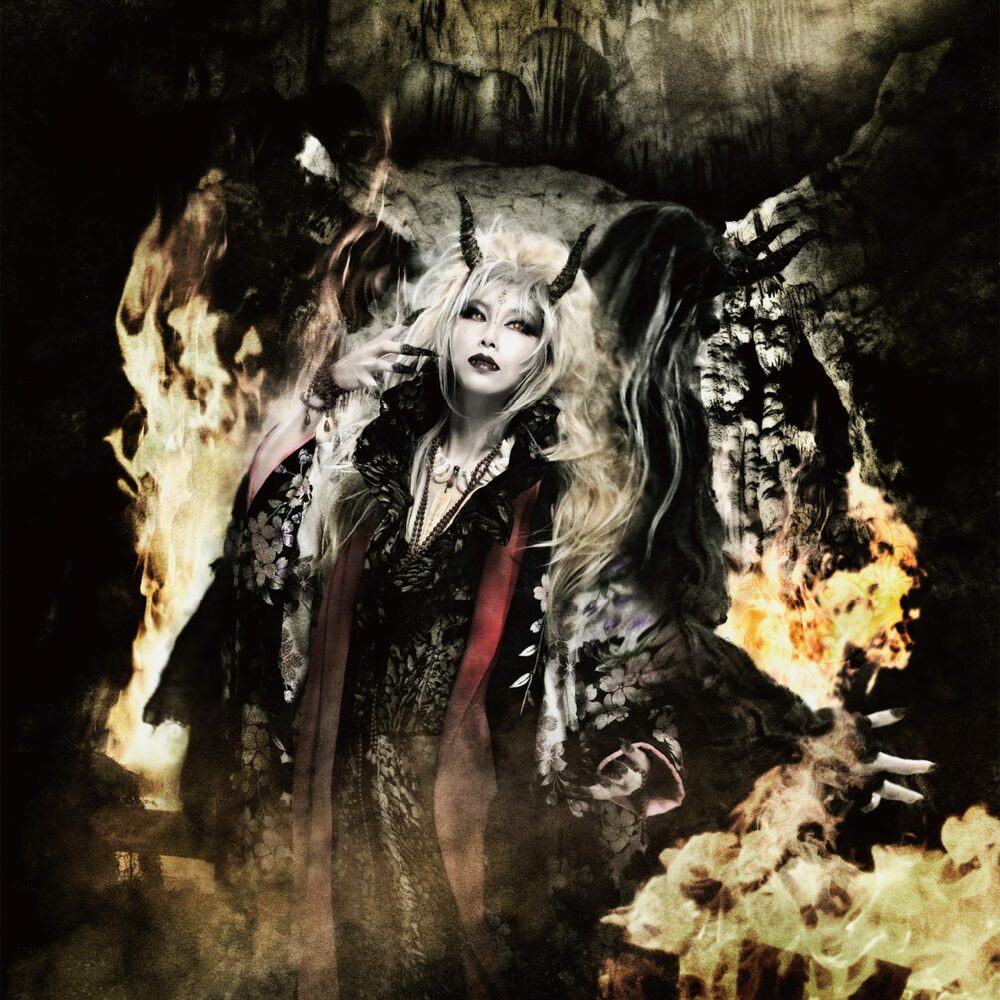 |
Country: Japan
Style: Heavy Metal
Rating: 7/10
Release Date: 18 Jan 2023
Sites: Facebook | Metal Archives | Official Website | Twitter | YouTube
I remember being surprised in 2019 by a Japanese band called 人間椅子, or Ningen-isu, meaning Human Chair, not because of their music but because they've been making it since 1987 and I had no idea until their 21st album. Well, here's another Japanese band who are completely new to me, even though they've also been around for a long time and they've knocked out a lot of successful albums in their home country. They're 陰陽座, or Onmyo-za, which apparently means "gathering of yin and yang", and this is their sixteenth album since they were formed in 1999, with 龍凰童子 or Ryou Doji meaning Legacy of the Dragon King.
Like Ningen-isu, who were a primary influence on them, all their releases are entirely in Japanese and they have a visual aesthetic drawn from Japanese history. In Onmyo-za's case, the entire band follows the same look, which is sourced from the Heian Period, about a thousand years ago. While they came to me listed as folk metal, I see that more as a visual thing than a musical one, with the sound only occasionally dipping into traditional folk instrumentation, like what I presume is a koto at the beginning of Ibaragidouji.
It's well within the bounds of possibility that the lead vocals of Kuroneko have a grounding in folk music too, but I'm not well versed enough to recognise anything here, unlike some of those early Babymetal songs like Megitsune, where I recognised Sakura, Sakura from matsuri and the "Sore!" chant from many a taiko performance. These melodies could be rooted in folk but it doesn't seem like they were actually borrowed from specific songs. Even if I'm horribly wrong there, and I could well be, they're the most obvious folk element here, that brief glimpse of koto aside.
The music behind Kuroneko, and sometimes her husband, the band's leader, Matatabi, is far from folk-influenced and rooted very clearly in old school heavy metal. Ryuusou is an urgent song to get the album moving, with strong riffing that's even more reminiscent of Accept when the bass kicks in. Houou no Hitsugi is unmistakably Iron Maiden when it begins, though that pulls back a little as the vocals show up, as so many of these songs do.
Not all the influences are that heavy, because Karura reminds more of a hard rock band who puts out radio friendly singles but rocks out more on their albums. I got Journey vibes from this one, a feeling that only grew when the piano made itself as notable as the guitars. However, there are a few nods towards more contemporary metal, Ibaragidouji sounding more like Pantera than any of the earlies eighties bands that tend to come to mind. It's often the bass that brings the sound into a more current feel, though the heavier chug on Kakugo doesn't weigh the song down as it ought to. It's another AOR infused song, merely with a riff that's more like Black Label Society.
Having no background in Onmyo-Za's music to go on, I'm reliant here on a very welcome review by a Dutch critic called Kevin Pasman who writes at Kevy Metal. He knows their music well and he says that this is "the most traditional-sounding Onmyo-za album released in quite a while". Matatabi's usually more prominent than he is here, where he takes a back seat vocally on many of the songs, to focus on his bass instead. I presume songs like Ooinaru Kappo and Akashita are more like their usual approach, where he steps up to alternate verses with Kuroneko. I'm eager to find out.
Pasman also calls out how long this album is as another anomaly. It's definitely a sprawling album, making it past the seventy minute mark, and there isn't as much variety as that length might hint at, but I never got bored with it, even though the last few songs started to blur together, finding a way to delineate themselves only by the addition of birdsong. OK, Tokimeki closes out in more of a bubbly J-pop vibe than anything else here, but that's not a plus either.
Maybe part of that is that this feels like a solid album that I must have missed in the late eighties, when I was enjoying Japanese bands like Vow Wow (usually Bow Wow), Loudness and Earthshaker, who were sorely underrated. Vibrant up tempo tracks like Gekkaninpouchou that mix heavy guitars, a strong bass underpinning and subtle keyboards would have been up there with many of the tracks on Vow Wow's Cyclone album at the time. It also stops on a dime too and does so with magnificent effect.
One marker that it's a long album is that we're almost forty minutes in when the epic shows up, a soft and folky ballad for four minutes before it ramps up into mid-tempo guitars and some hungry drums. It's Shiramine, which appears to mean Whitebait, and it's an eleven minute track with five more songs queued up in its wake. Somehow it doesn't feel overlong but it didn't seem like it was worth two others.
Onmyo-za seem to knock out their albums pretty consistently, with three years being the longest gap between them until now, because this one's been five years coming. I presume we have COVID to blame for that, along with so much else, but it's been well received, as their highest charting in their history thus far. It's not just Europe apparently; Onmyo-za only spent a week in the Japanese chart in mid-January, but that was at number six, even if it only sold a single copy for every twenty by Back Number, who debuted at the top spot. I guess that's a target for the next one.


No comments:
Post a Comment